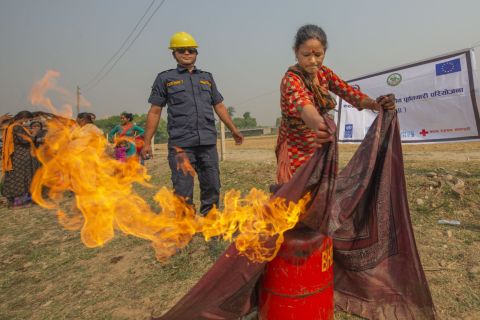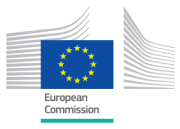
During this workshop, the main findings of a special Eurobarometer on the disaster risk awareness and preparedness of the EU population will be presented to shed light on how it perceives and prepares for different disaster risk scenarios. Speakers from Horizon 2020 projects will then discuss how to enhance European disaster resilience by strengthening technology and society and provide innovative solutions for leveraging societal resilience in emergency response.
- Urban | Local and regional | National | EU/ European | Climate and environment | Sustainable | Civil protection and risk prevention | Research and Innovation
- Code: 09WS241104
- Albert Borschette Conference Centre, AB-3C
Speakers
Practical information
- When
-
Wed 09/10/2024, 14:30 - 15:30 CET
- Where
- Albert Borschette Conference Centre, AB-3C
- Type of partnership
- Partnership
- Format
- Workshop/ panel debate
- Theme
-
Smart and sustainable growth for regions
- Language
- English

Partner

European Research Executive Agency
Documents
Reporting
Session summary
Discussions included the ways in which the EU population perceives and prepares for different disaster risk scenarios, how EU security research can strengthen the engagement and preparedness of citizens, as well as innovative solutions for leveraging societal resilience in disaster risk management.
DG ECHO shared valuable insights into the results of the special Eurobarometer on disaster risk awareness and preparedness in the EU. These results could enrich the disaster preparedness efforts of EU member states; guiding regional and local authorities in order to close preparedness gaps. Presenters discussed how to address these gaps and proposed solutions for enhancing community resilience through technology and public engagement.
Following up on this, project ENGAGE emphasized the need for better citizen engagement, particularly for marginalized groups, stressing that more inclusive participation is essential in all stages of crisis management. Meanwhile, project LINKS shed light on the importance of risk and crisis communication with the population. Trust and access to information are viable in increasing people’s risk awareness and preparedness. Significantly, traditional media has a high level of trust among the general population, while social media - more predominantly used by younger generations - faces a lack of public confidence in crisis communication.
Additionally, the workshop tackled challenges related to border regions, particularly around cross-border communication, and trust-building. The key takeaways from the workshop included the importance of volunteer involvement, resource allocation and the integration of technological innovations within community-focused strategies.
In conclusion, building a disaster resilient Europe requires coordinated and sustained efforts on several fronts. The workshop emphasized the importance of data driven insights, involvement of citizens, particularly marginalized groups, and regional cooperation. The role of the media in shaping public confidence was also underlined as crucial for preparedness. Therefore, a comprehensive and inclusive approach combining technology, community involvement and cross-sectoral collaboration is essential to strengthen Europe's disaster resilience.
Quotes
-
While technological innovation is essential, its meaningful integration requires a strong social element to ensure relevance and effectiveness
Volunteers are essential in providing critical support and fostering community recovery in times of crisis



